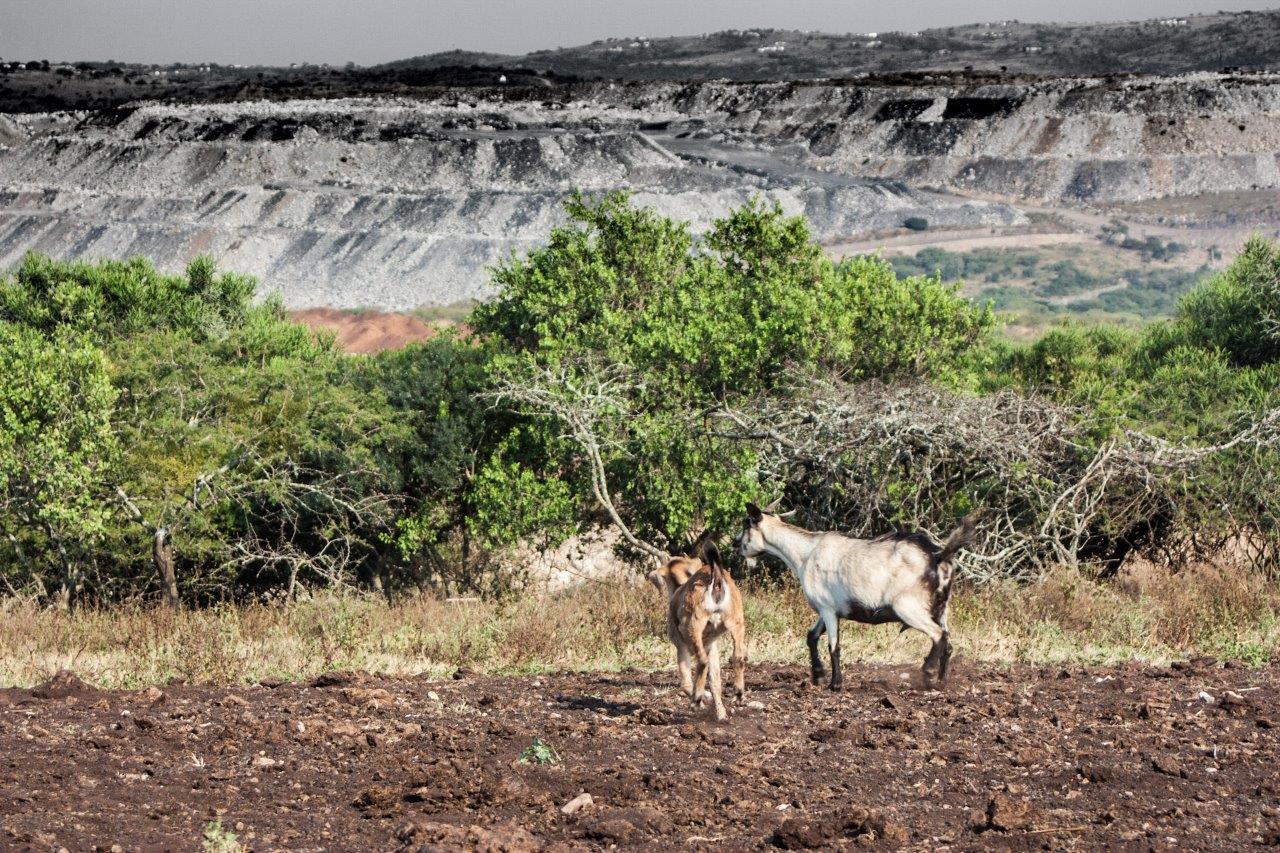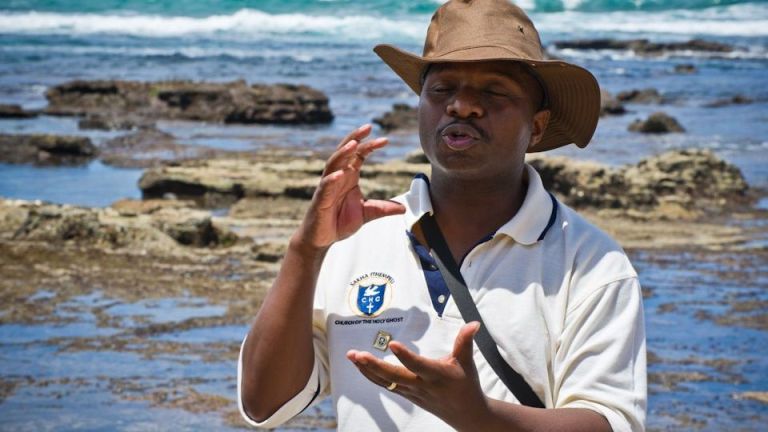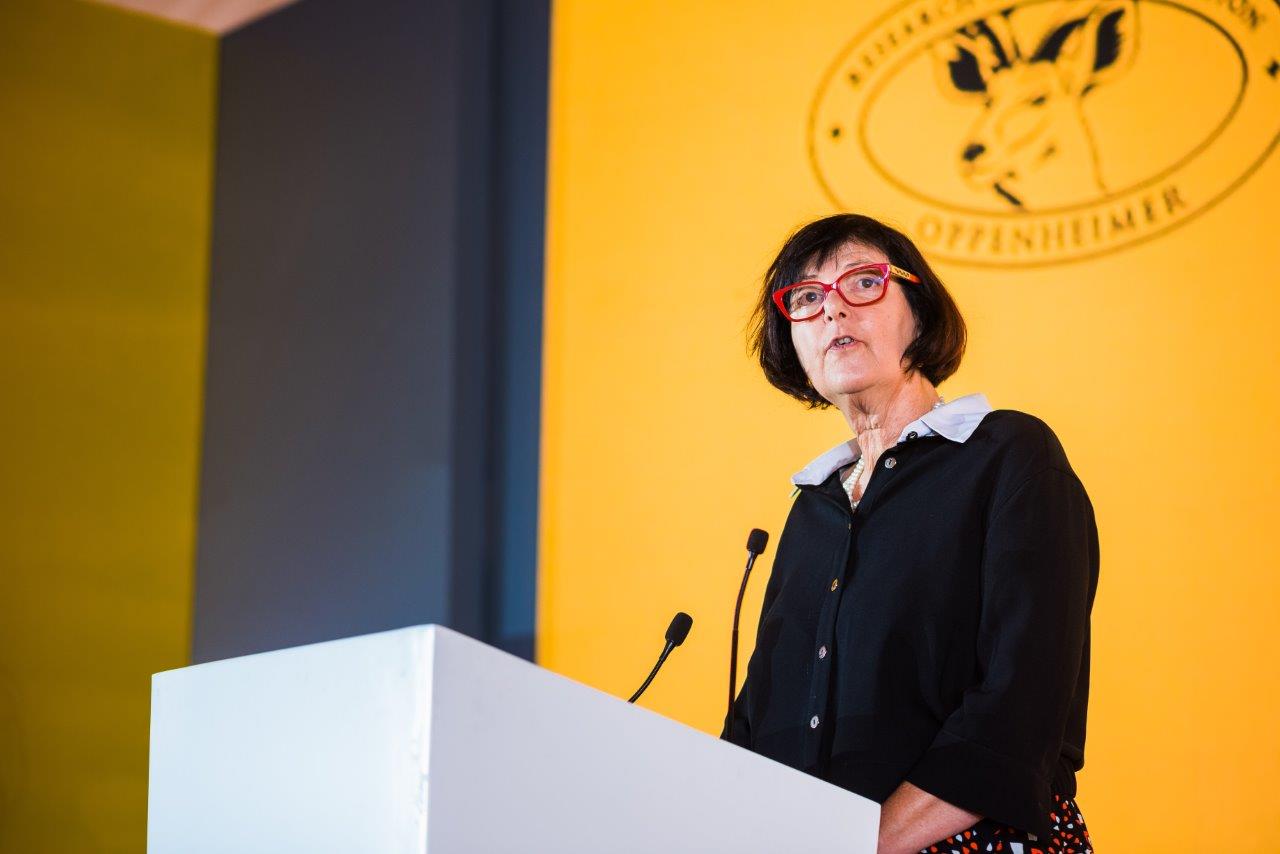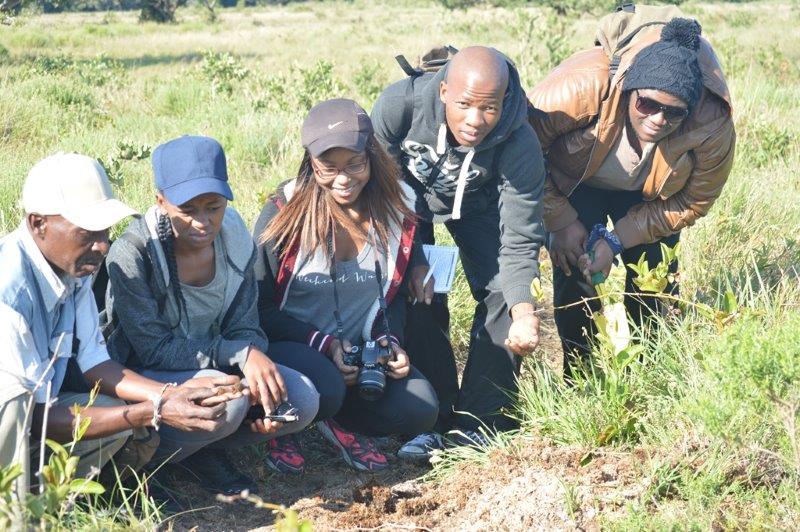There is a link between economic growth and environmental disaster. And in South Africa, one of the most unequal societies in the world, it is going to be a tough problem to solve.
By Rio Button and Fred Kockott for Roving Reporters
Can developing countries like South Africa afford to go ‘green’ if it’s the poor who will bear the cost? Yet if we fail to act and temperatures keep rising above the pre-industrial global levels, we risk a wave of climate-related disasters.
That’s the knotty problem facing conservation and it was at the heart of a lively debate during an Oppenheimer Research Conference panel discussion last week. The panel was put together by Future Ecosystems for Africa, and broadcast as part of the Oppenheimer Generations Research and Conservation (OGRC) Tipping Points webinar series.
Dr Neva Makgetla, a senior economist at the Trade & Industrial Policy Strategies put the conundrum in stark terms.
“One thing in economics, there are always winners and losers,” she said, citing as an example the rollout of roads in the country and how a desire to preserve natural spaces leaves the poorest provinces behind.
“You can build a road anywhere in Gauteng, if you want. But when we tried to build that road linking KwaZulu-Natal to the Eastern Cape, it was too bad for the environment. And so we never did,” said Makgetla.
Sharing the platform with Makgetla was South African businessman and social impact investor at Oppenheimer Generations, Jonathan Oppenheimer, Awande Buthelezi, a researcher at the Co-operative and Policy Alternative Centre, and Vasna Ramasar, a senior lecturer and sustainability science researcher at the Lund University Centre for Sustainability Studies in Sweden.
They were among more than 380 African and global scholars attending the conference – a platform for researchers and practitioners in conservation sustainability to share knowledge.
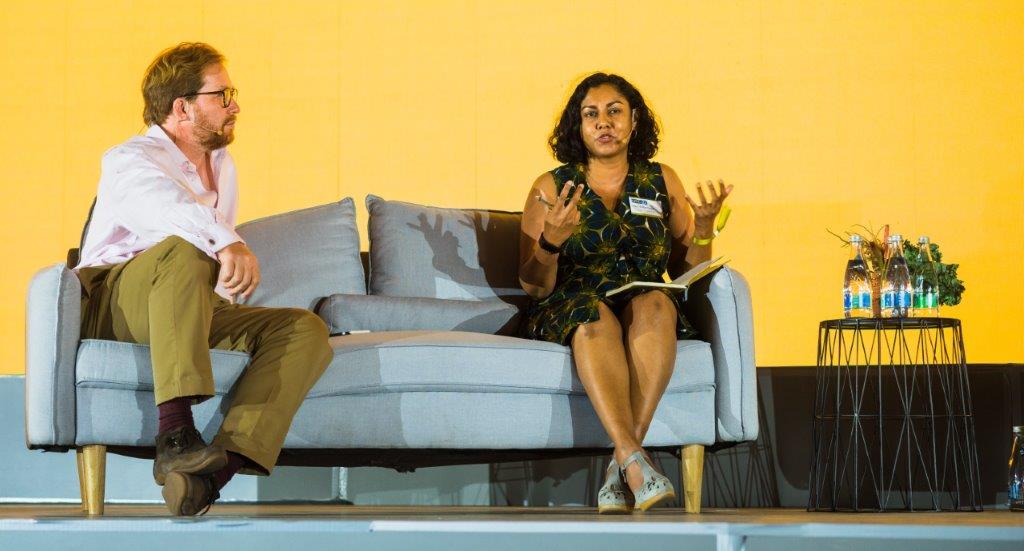
Makgetla mentioned coal power, a huge polluter but also the bedrock of the South African economy, as another example of the difficulties we face promoting economic growth while looking after the environment.
“We have sunk investments into old technology and have to pay for new technologies. [The transition is] very disruptive for government and private sector systems,” she said. In Germany, the solution has been paying off coal companies, “paying them to go away”. In South Africa, we can’t afford to do that, she said.
There was a clear link between economic growth and environmental disaster, said Makgetla.
And while one could perhaps envision a “nearly entirely clean growth in terms of emissions and pollution” the same could not be said of dealing with the conflicting needs of infrastructural development and conservation.
There had been under-investment in remote rural areas, especially the apartheid-era homelands, “where around a quarter of the population still live”.
“Therefore, in areas that are most natural, we end up with a paradox. We say we can’t put infrastructure into those areas because we want to protect them (conserve biodiversity in these areas),” said Makgetla.
She stressed that rich people could find alternatives, disinvest and go elsewhere when faced with changes they did not like.
“But poor people and working people do not have the resources to be as resilient,” said Makgetla.
Radical change
She said sustainable, as well as equitable growth, would require not only “changing every aspect of the economy, but also society in a whole variety of ways.”
“What we can’t do is say to the majority: You have to sacrifice for the good of the environment. In a democracy that doesn’t work. They also have to see the benefits. It can’t always be just the environment. That’s a way of saying: “No, you can’t have what other people have.’”
Responding, Buthelezi said this was “one of the most defining conversations of our time”.
“If there is a future for humanity and our civilization, we will look back at these kinds of conversations with regards to how did we get to where we are headed,” said Buthelezi.
He said the 2018 IPCC special report was “very prescient and clear” about the crisis.
The report warned that failure to limit global warming to 1.5 degrees by 2030 will have far-reaching environmental and social consequences across the world – including, perhaps, a sixth mass extinction event, added Buthelezi.
Preventing this required nothing less than widespread and fundamental changes to how societies were organised, he said.
Steep challenge
He agreed with Makgetla that levels of poverty turned the search for solutions into “‘a very steep challenge” for South Africa – one of the world’s climate hotspots, warming at twice the global average.
While new political and economic approaches were urgently required, far too little was actually being done, said Buthelezi. He called for fresh thinking “at the level of a wartime government”.
“We have to be brave, and we have to be expansive,” he said.
Oppenheimer, executive chairman of Oppenheimer Generations, said there was a need to “touch the world more gently”.
“We are by our very nature consumptive – every living animal is consumptive… So we need to consume the biodiversity and the ecology of this world in a way that is replaceable and sustainable…. at a rate less than the self-healing rate of the living organism that is our world.”
“And I would suggest that if you thought about your lives getting worse, your willingness to play by any rules set by others, would be very low. By contrast, if your lives were improving, you would believe that those rules were to your benefit, and you would play by them,” said Oppenheimer.
Delicate balance
“So, we have to find this very, very delicate balance between, on the one hand, making use of our environment in a way that is sustainable for not only ourselves, but future generations, and ideally, creating the space for [ecological] regeneration,” said Oppenheimer.
If we fail to do that, one or other crises will kill us, he said.
The enormous challenge, he said, was how to move from a “non-renewable (grey) energy ecosystem, which we live in today, to a renewable (green) energy ecosystem”.
Ramasar agreed that a failure to address climate change effectively would be disastrous, resulting in increased intensities of severe storms, mass extinctions and the spread of vector borne diseases.
But many “’green’ growth solutions touted in the Global North” were dependent on labour, water, energy, land and resources from the Global South, said Ramasar.
“So, some of the solutions that are being put forward are really problematic (for Africa),” she said.
Ramasar said there was a need to change “economic organisation” as a whole.
Lifestyle
And she stressed that growth should not itself be the primary objective.
“We actually need to think about what is it to have a good life? What is it to have a fulfilled life? It’s not always about hi-tech. It’s not about solutions that are going to allow us to consume more,” she said. “It’s about solutions that allow us to consume enough.”
“This is what we need to think about,” said Ramasar, posing this question: “How do we all think together to find different ways to understand what is a good life for people, for the planet, for places.”
You can watch the full panel discussion on the OGRC YouTube page.
This story, first published by Daily Maverick, was commissioned by Jive Media Africa. and forms part of Roving Reporters Game Changers series.
- Rio Button is a conservation biologist and Western Cape ambassador for WESSA’s Young Reporters for the Environment. She is also taking part in environmental investigative journalism initiative established with the support of the Henry Nxumalo Foundation. Fred Kockott is the director of Roving Reporters.

